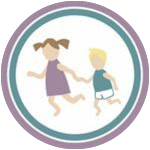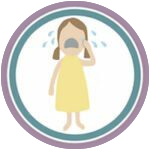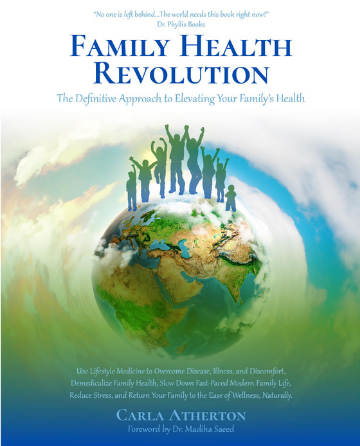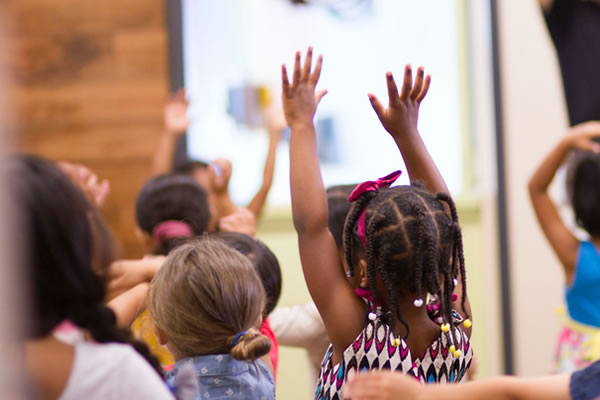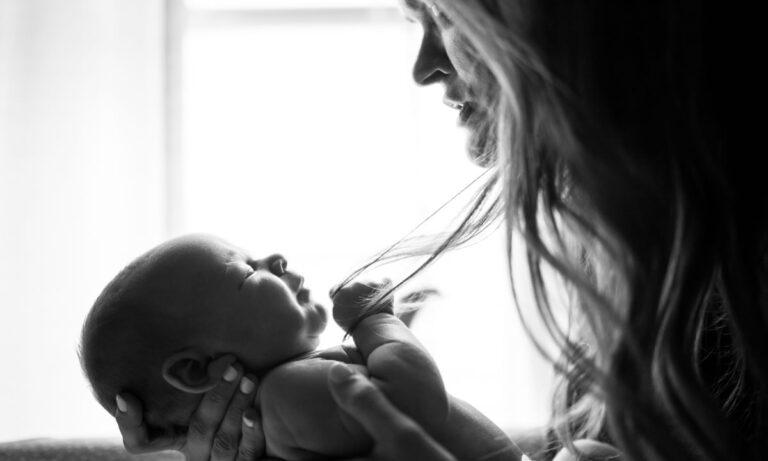…so we can raise powerful “tiger” children
Q: I have read the CNN interview with Amy Chua, author of Battle Hymn of the Tiger Mother. Chua speaks of her superior Chinese parenting. Many people see her as abusive, but others think she puts much more into her children. I am feeling confused. I am here to give my children all that I can. If I give less than this “Tiger” mom does, it is because I think it is actually better to allow children to grow up on their own. But now I am not sure. We are unschooling, and my children fifteen, twelve, and nine, are not practicing anything. Are they missing something? Am I depriving them of accomplishing high ranks in society?
A: Any mother, Chinese or not, would abandon control and manipulation if she knew kinder ways to raise a happy child who grows up into a loving, joyous and accomplished adult. Chua would be very happy if her children would be fulfilling their own passions, without oppression. She would love to never have to coerce, yell, threaten and make her home into “a war zone” (her words.) Only, she doesn’t know that this is possible.
However, there is merit in Chua’s criticism of the hands-off parenting attitude. Your concern is therefore valid. If you confuse freedom with doing nothing, then, yes, you may want to consider taking a more proactive direction with your children. But you need not resort to control and coercion. It is possible to raise children who strive for excellence of their own. In fact, it is their nature to do so.
Although Chua presents her way as “Chinese” this brand of authoritarian parenting is nothing new and is prevalent in most of the world. Many parents who call for my guidance are working on overcoming anxieties, depression, and rage rooted in such childhoods. In her book, The Drama of The Gifted Child, Alice Miller gives voice to the suffering of children who have been molded by their parents’ need for glory.
Why Control Hurts
Manipulative parenting breeds emotional suffering, whether seen on the outside or not. Dependency on parental approval, fear of lack of it, fear of failure, and anxiety to fulfill parental expectations, are the source of confusion, depression, suicide, addictions, unhappiness, inability to trust, aggression, and illness.
Chua measures success in terms of prestige instead of in terms of joy and inner connection. Caught in her own dependency on approval, she molds her daughters in an effort to make herself look good, robbing them of the ability to be themselves.
We can raise children who are not only powerful and successful on the outside, but also peaceful and joyous on the inside. Such a path is devoid of coercion, yet full of passion and immersion in life opportunities. It also includes protecting the child from forces that thwart her freedom to source herself authentically.
But her daughter cuddles with her lovingly
The CNN article chose to display the story of Chua’s mental abuse of her seven-year-old daughter when practicing the piano.
“I rolled up my sleeves and went back to Lulu. I used every weapon and tactic I could think of. We worked right through dinner into the night, and I wouldn’t let Lulu get up, not for water, not even to go to the bathroom. The house became a war zone, and I lost my voice yelling, but still there seemed to be only negative progress, and even I began to have doubts. Then, out of the blue, Lulu did it… A moment later, she was beaming… That night, she came to sleep in my bed, and we snuggled and hugged… When she performed…a few weeks later, her parents came up to me and said, “What a perfect piece for Lulu—it’s so spunky and so her.”
Reading these words, I cringe. My heart goes out to this mother, as I see her desperate need for approval. She misses the real meaning of her daughter’s cuddle, and she quotes the praise for her child’s performance as approval for herself; “Look at me! I am a great mother. They said my child is good.” She is suffering from the same dependency on approval that she is so passionately passing on to her child.
As for Lulu, the poor child cuddles in the same way that an abused child cuddles with her abuser (a well-known phenomenon). The child is not expressing joy but great relief to regain her mother’s approval. Lulu could have mastered the music in her own time and would have experienced true self-satisfaction. She would have accomplished so much more by developing her own learning strategy (even if months later.) Instead, Lulu learned to see herself as unable to accomplish the task on her own. Many adults never recover from this binding dependency and bow to their parents even as adults; “She did so much for me, I owe my life to her… I would be nothing without her.” That “nothing” is the horror the child lives with inside.
Obviously, Lulu might not even like the piano. While being so busy fulfilling her mother’s dream, she has no awareness of her own aspirations. She is becoming a sheep.
The Tiger Child
We want to raise “tiger” children; children who are rooted in themselves and therefore powerful, content, and self-trusting. To do so we must use our motherly “claws” not to control the child, but to protect her from anyone’s attempt to control her. We protect the child’s connection to herself. Innovators, artists, creators, and free thinkers listen to their own source being. They can flourish when they are free of dependency on approval. They can win competitions if it is their desire, and they retain their happiness when they don’t win.
My youngest, Oliver Aldort is a cellist ( as well as a piano and conducting student) who has won national competitions, played in Carnegie Hall as a teenager, performs as a soloist with orchestras since the age of ten, has been on radio and TV and is a 4.0 student on full scholarship at one of the two best music colleges in the country where he was accepted at age sixteen. Chua would have a hard time learning that this kid, who outshines many others who practiced under parental surveillance, has never been forced to do anything, not even to go to school. Like many thriving unschoolers, he does what he does for his own sake.
Oliver knows I am not interested in his grades or winnings of competitions. I have often reminded him that he can always quit and that he won with me by being himself. He, therefore, does not depend on winning or being the best. On the flight to a national competition, I asked him how he feels when he goes onto the competition stage. He said, “I go in to win. And then, whatever happens, is fine with me.” This emotional freedom helped him win this and other competitions. His brothers are as successful in different universities and on very different paths and they don’t enter competitions. I am happy that they source their own lives from the inside, with no pressure to succeed, other than their own. To me, their grades and prestige have no value. What matters is their inner joy and peace.
Are your children missing something?
Although there is no need to oppress children and propel them coercively to compete and achieve, it is our job to “fertilize the earth” on which they grow and protect their inner freedom. I, therefore, do agree with your concern. You may want to re-evaluate and see if by the freedom you mean trivializing life and letting it all hang out. Check to see if you can do more to offer an environment that inspires the child to contribute and expand.
My sons strive for excellence, not because of being pushed, but by being immersed in a life that is lived with passion and care. Children absorb whatever attitudes we expose them to. They choose a direction from what they experience. They do need protection and an environment that exposes them to inspiring possibilities.
We can compare it to soaking different fabrics in dyes. Whether silk or wool, it becomes the color it is immersed in. Likewise, provide your children with a high-quality environment, and possibilities to choose from because they will take on the “color” of whatever they “bathe” in socially, artistically, and otherwise.
Striving for Excellence Is the Child’s Nature
Have you seen a child who has a fit if you didn’t cut the cheese straight; if the socks aren’t even; if his picture is not hanging perfectly? Notice the child’s insistence on doing things well. Children do not trivialize anything. They strive for excellence. Why train them out of this human quality? Why not commit to excellence? After all, it is more fulfilling.
When one of my toddlers threw food on the floor (striving for an excellent aim,) I never stopped him. And, I clean it promptly or as soon as it was of no use to him. He learns that it is worthwhile keeping things neat. If his hair reaches his eyebrows, I trim it. I offered nice fitting brightly colored clothing. We served food attractively and we played music by the top composers and performers.
The child learns that if we do things, we do them well and enjoy every moment of our lives with all our senses. He is free in a world that cares. He learns to value quality; he learns to do things well by the way we hang our coats and by the way we plant the flowers in our doorway. It all counts (and does not depend on money.)
Our culture worships the concepts of, “All is nice, everyone is best, take it easy, it’s all the same…etc.” Yes, we want to lighten up and learn to love differences and have a sense of humor. But tolerance and joy do not negate the desire for expansion and achievement. We have no choice over this human quality and we can celebrate it rather than judge or trivialize it. And yes, some children and people are not as driven as others and that’s their path.
We can honor the child’s autonomy while providing a life that demonstrates a commitment to quality, connection, clear communication, and excellence in the kind of art we watch, the music we listen to or play, the homes we live in, and the way we speak. Freedom does not mean neglect or license. Your children were born to adult parents for a good reason. They do not need your control, but they count on your leadership.
True leaders do not dominate; they follow the child’s direction and provide the environment that allows him to flourish. Life matters because when we make it matter it is more enjoyable.
©Copyright Naomi Aldort






